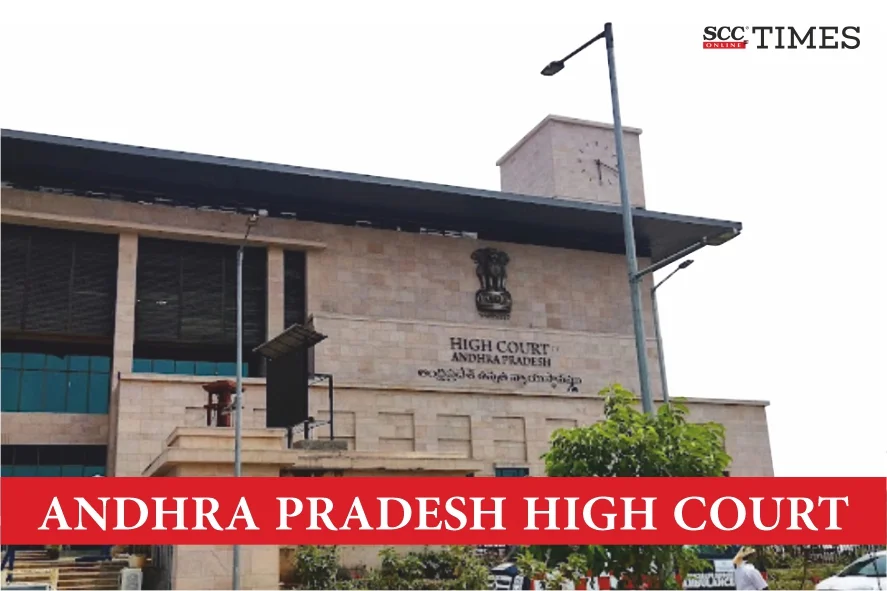Andhra Pradesh High Court: A petition was filed seeking to issue an order or direction declaring the action of the respondent authorities in not paying the death benefits of an individual who died in harness as 2nd Grade Teacher in St. Anthony Elementary School, Maharanipeta, Visakhapatnam as arbitrary, illegal, null and void and consequently direct the respondent authorities to pay the death benefits in favor of the petitioner. Venkata Jyothirmai Pratapa, J., directed the respondent authorities to reconstruct the service register within one month and to treat the petitioner’s claims as correct and disburse all admissible death benefits to him within two months.
The deceased was employed as a Secondary Grade Teacher at St. Anthony Elementary School, Maharanipeta, Visakhapatnam, an aided educational institution under the management of respondent 2. She passed away on 30-08-1988 while still in service, leaving behind her father, her husband, and her brother (petitioner). Following her death, disputes arose regarding the rightful claimant to her service and death benefits. The petitioner approached the II Additional District Judge, Visakhapatnam and was declared the legal heir of the deceased. The order listed a detailed schedule of amounts claimed, aggregating to Rs. 1,66,966.32, which included gratuity, arrears, salary for August 1988, provident fund, group insurance, and balances in multiple savings accounts. The said order was challenged by the mother of the deceased’s husband (as the husband had by then passed away). The appeal was dismissed on 17-01-2000, as the appellant failed to prove a will and could not be substituted as the legal representative. Thus, the declaration of the petitioner as the sole legal heir attained finality.
Subsequently, the petitioner filed a suit before the III Additional Junior Civil Judge, Visakhapatnam, seeking direction from the school authorities for reconstruction of the service register of the deceased. The suit was decreed in his favour on 31-05-2010, but the school failed to comply. He then initiated the execution petition which was allowed on 31-03-2015. Despite these legal victories and a registered notice sent on 24-07-2017, the respondents did not disburse the death benefits. Aggrieved, the petitioner invoked Article 226 through the present writ petition, seeking a mandamus declaring the authorities’ inaction as arbitrary and illegal, and directing disbursement of the pending benefits.
Counsel for the petitioner submitted that the petitioner is the only surviving legal heir of the deceased as declared by the competent civil court. It was emphasized that the legal heir certificate had attained finality and that despite numerous efforts including a decree for reconstruction of the service register and a successfully executed execution petition, the authorities had failed to pay the statutory dues. The deceased had no children, and her husband had passed away after her demise. The prolonged denial of benefits amounted to a continuing injustice to both the deceased and her rightful heir.
The Court took cognizance of the undisputed facts and was critical of the casual way the authorities dismissed the petitioner’s claim, relying solely on a letter dated 14-05-2018 from the school’s correspondent that lacked any supporting documents or evidentiary basis. The letter, compiled from memory and hearsay, was found to be untenable and legally inadequate, especially given the binding judicial orders in favour of the petitioner. The explanation that the service register had been misplaced was not sufficient justification for the denial of rightful claims.
As for the issue of family pension, the Court acknowledged the legal position under Rule 50 of the A.P. Revised Pension Rules, 1980, and held that the petitioner, being a brother, was not entitled to family pension benefits. However, this disqualification did not extend to other death benefits, which the petitioner was entitled to, by virtue of being the declared legal heir.
The Court held that the continued inaction of the respondent authorities in disbursing the death benefits of the deceased to the petitioner despite judicial recognition of his legal heirship and successive decrees was arbitrary, illegal, and in clear violation of law. Accordingly, the Writ Petition was allowed. The Court issued the following directions:
-
Respondents 1, 3, and 4 are directed to ensure that Respondent No. 2 reconstructs the service register of the deceased within one month from the date of receipt of a copy of this order.
-
If Respondent 2 fails to reconstruct the register, and if there is no evidence of prior payment of dues, the respondents shall treat the petitioner’s claims as true and correct.
-
The respondents are directed to release all admissible death benefits of the deceased excluding family pension to the petitioner within a further period of two months.
-
The claim for family pension was rejected, being barred by statutory provisions.
There shall be no order as to costs, and all pending applications were ordered to stand closed.
[Darana Harry v. State of AP, 2025 SCC OnLine AP 1759, decided on 09-05-2025]
Advocates who appeared in this case :
Counsel for the Petitioner: ARRABOLU SAI NAVEEN
Counsel for the Respondent(S): K SWARNA SESHU (SC FOR AG) and K SWARNA SESHU



